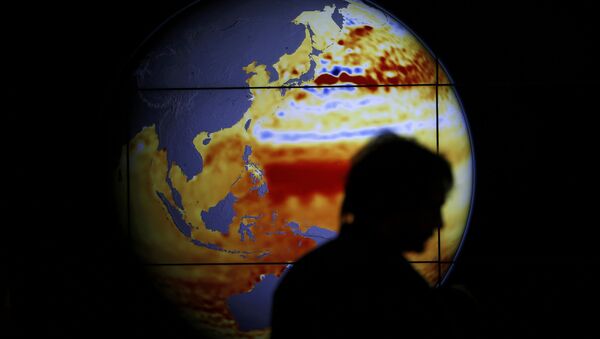The procrastination of governments, businesses and civilization, in quickly reducing global carbon emissions, will adversely impact climate, ecosystems and human society for tens of thousands years, according to a study conducted by University of Bern scientists.
The researchers suggest that the absence of a political will to make significant moves toward mitigating the causes of climate change will result in an unprecedented warming of the planet’s atmosphere.
Climate change, it's probably gonna keep making the world hotter over the next 5 years https://t.co/4Z3Wf2cpyc pic.twitter.com/2ypz0ghhE1
— ClimateCentral (@ClimateCentral) February 8, 2016
Pfister explained that as global powers mull over emission reduction statistics, and how those numbers will affect an economic bottom line, the process of global warming speeds up, and will soon get out of control, leading to dangerous consequences, including a dramatic rise in sea levels and poisonous ocean acidification.
"In 10 years without global reductions, a 2.5°C target will have become about as ambitious as the 2°C target is today," he said.
New measurements reveal that climate change's heat extends to the depths of the oceans https://t.co/7BKeVyOReH pic.twitter.com/IpTonI9kt0
— ClimateCentral (@ClimateCentral) February 8, 2016
But even if humans manage to preserve a temperature increase at or below a 2°C level, the long-term effects will be disastrous, Pfister stated.
Under this scenario, ocean levels will rise by some 25 meters over the next two millennia, forcing billions of people to leave coastal areas and islands, and move to higher ground.
Another scenario to motivate those with a vested interest in their national sovereignty, or their long term corporate bottom line, to make those changes that could make a difference, according to the researchers, is the accelerating acidification of the ocean.
The study assumes that under the current pace of the acidification, people will face "near-complete loss" of a number of maritime ecosystems, including coral reefs.
"The long-term view sends the chilling message of what the real risks and consequences are of the fossil fuel era," Thomas Stocker, a climate physicist and co-author of the study, said. He added that, with no actual steps taken to immediately stop the use of fossil fuels, humanity will learn that “dislocation and migration” is “the only option" for survival.
The study held out some hope for the future, suggesting that industrial petrochemical dependency could be reversed in the upcoming decades, and “offer a brief window of opportunity” to mitigate climate change.



